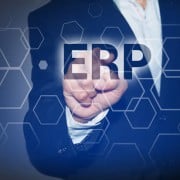ERP Leveled Up In 2024 — Where Is It Headed In 2025?
Robert Kramer, VP & Principal Analyst of enterprise data, ERP, and SCM, shares an article on Forbes that explores the significant advancements in enterprise resource planning (ERP) systems in 2024, driven by AI technologies. These changes represent a shift from ERP tools that primarily support human decision-making to more autonomous, intelligent platforms. According to Kramer, AI integration has enabled sophisticated natural language interactions, real-time decision-making, and AI agents capable of managing complex tasks across various ERP functions. He notes that the ERP market is set for substantial growth, projected to increase from $81.15 billion in 2024 to $238.79 billion by 2032. This growth is driven by the increasing complexity of business operations, global continuity needs, regulatory demands, and shifting customer expectations. AI, machine learning, and cloud technologies have played a central role in making ERP solutions more scalable, adaptable, and efficient. He also highlights how major ERP vendors, such as Oracle, SAP, Microsoft, and Infor, have integrated AI-powered tools to enhance financial planning, supply chain management, and user experience. For example, Oracle Cloud ERP introduced AI tools for real-time financial planning and procurement, while SAP’s Joule AI copilot provides real-time recommendations for optimizing business processes. Microsoft Dynamics 365 ERP is now part of the Copilot ecosystem, allowing for more intuitive workflows across finance and supply chain management. Sustainability has also become a critical focus in ERP systems. Kramer observes that ERP vendors are integrating sustainability features, such as carbon footprint tracking and compliance with environmental regulations. SAP’s Sustainability Data Exchange, for instance, allows for real-time emissions monitoring, helping enterprises meet environmental targets and align operational goals with sustainability efforts. Oracle and Infor also offer carbon footprint management tools, with AI augmenting capabilities like waste reduction and emissions tracking.
Looking ahead to 2025, Kramer suggests that AI agents will take on more sophisticated responsibilities, including end-to-end processes and automated decision-making across functions like inventory management, customer service, and supply chain optimization. ERP systems will increasingly integrate AI with IoT and edge computing, enhancing real-time monitoring and predictive maintenance capabilities. Personalization will also improve, with ERP interfaces adapting to individual user roles and preferences. Kramer predicts that the deployment of ERP systems will become more agile, with a stronger emphasis on low-code/no-code platforms and AI-assisted implementations. Governance frameworks ensuring the transparency and accountability of AI-driven decisions will be crucial as AI takes on more responsibility. This reflects the principles of Industry 5.0, where AI and humans collaborate seamlessly, combining machine precision with human creativity. Lastly, Kramer suggests that ERP systems will continue to evolve in response to the growing complexity of modern enterprises. The integration of AI, machine learning, and sustainability features, along with more adaptable deployment strategies, will enable ERP platforms to meet operational and strategic needs while balancing automation with human oversight.



Leave a Reply
Want to join the discussion?Feel free to contribute!